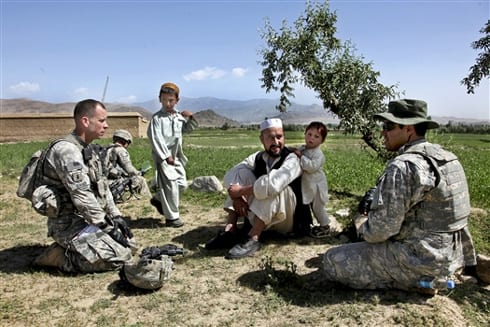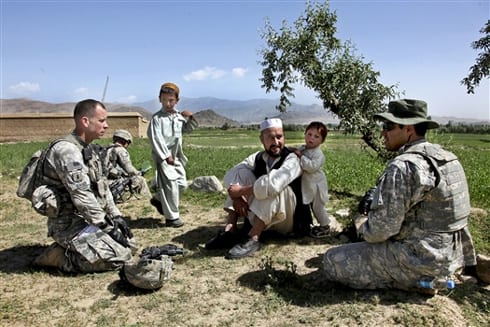
I join my GWU and IPDGC colleague Tara Sonenshine in saluting Donald M. Bishop for a thoughtful speech on the state of U.S. public diplomacy and the challenges it faces. Let me add my two cents to the discussion.
I agree with the bottom line: public diplomacy is not a sufficiently vital dimension of diplomacy, foreign policy and national security. In an increasingly interconnected world of the Internet, global media, personal media and billions of smartphones, it should be, but isn’t. To be truly influential and effective, public diplomacy must be relevant as policy decisions are being made rather than after the fact.
Structure, story and strategy are contributing factors to the U.S. public diplomacy deficit, but what impacts international perceptions of the United States is less who says what, where and how than what we do. This has always been true, but what has changed from the height of the Cold War is the lens through which our actions are judged and the amount of information available to the average global citizen to continually evaluate American leadership.
The United States took on a truly heroic leadership role through what Donald Bishop terms the “long twilight struggle.” Without the United States, the world would have a different character and vastly different expectations about the future.
That said, the United States took a number of actions during the Cold War that were in retrospect unwise, unproductive and perhaps even unlawful. When this occurred, there was controversy, but most of the world granted America the benefit of the doubt because they could see an alternative that they consistently judged to be worse. The Berlin Wall was the universal symbol of this dynamic.
During the Cold War, while there was a compelling story to tell about American freedom, progress and prosperity (although given race riots, assassinations, Vietnam and Watergate, there was a gap between perception and reality back then), it was really about them, about the Soviet Union and its violations of emerging international norms.
But since the fall of the wall, the world has changed and this has affected how the United States is viewed now. Actions are no longer about them, but primarily about us. There are competing strategic narratives, but America’s dominates. From our perspective, the narrative may still be the same – we’re the guys in white hats riding to everyone’s rescue – but our analog world is now high definition. The picture is a lot more detailed and nuanced than it once was. Still attractive, but blemishes are more visible.
The United States is seen as falling short of expectations, simultaneously accused as President Obama said at the United Nations as doing too much and too little at the same time. Actions are judged according to the international norms that we promulgated, most of the world has embraced and we are viewed fairly or unfairly as ignoring.
This challenge is far less about public diplomacy than policy.
We preach that other countries have to solve their domestic problems, but recently took the world on a political thrill ride with the global economy stuck in the back seat. This political rancor routinely during the Cold War as well – think Joe McCarthy – but what has changed is the rest of the world now has a front row seat and watched it unfold in real time.
In this environment, there is no way to say, pay no attention to the 536 people wrestling behind the green curtain! No heart, courage or especially brains were apparent. No public diplomacy wizard could put a smiley face on the events of the past 30 days.
The say-do gap exists in the foreign policy realm as well.
We support the United Nations when it serves our interests and ignore it when it doesn’t. We promote the transparent rule of law, but then create a parallel and opaque legal universe at Guantanamo, a prison we promised to close but haven’t. We believe in democracy but then condone a military coup that removes a duly elected (if imperfect) president in Egypt. We criticize China for stealing our military secrets, but argue everyone does it when our hand is discovered in the cookie jar. We say we respect the sovereignty of other countries, but do as we please. We say drone strikes don’t harm civilians even though we know better, or choose not to know. But it doesn’t matter, since drone operations are secret.
All of these policy judgments are tough calls. They may serve our interests, even if they do not always reflect our values. We see these issues in terms of security and stability, while much of the world looks for dignity, justice, opportunity and consistency. They can be explained by politicians, diplomats and lawyers, but not easily advanced through public diplomacy. Absent the overarching frame and context that the Cold War provided, this divide is not easily bridged.






